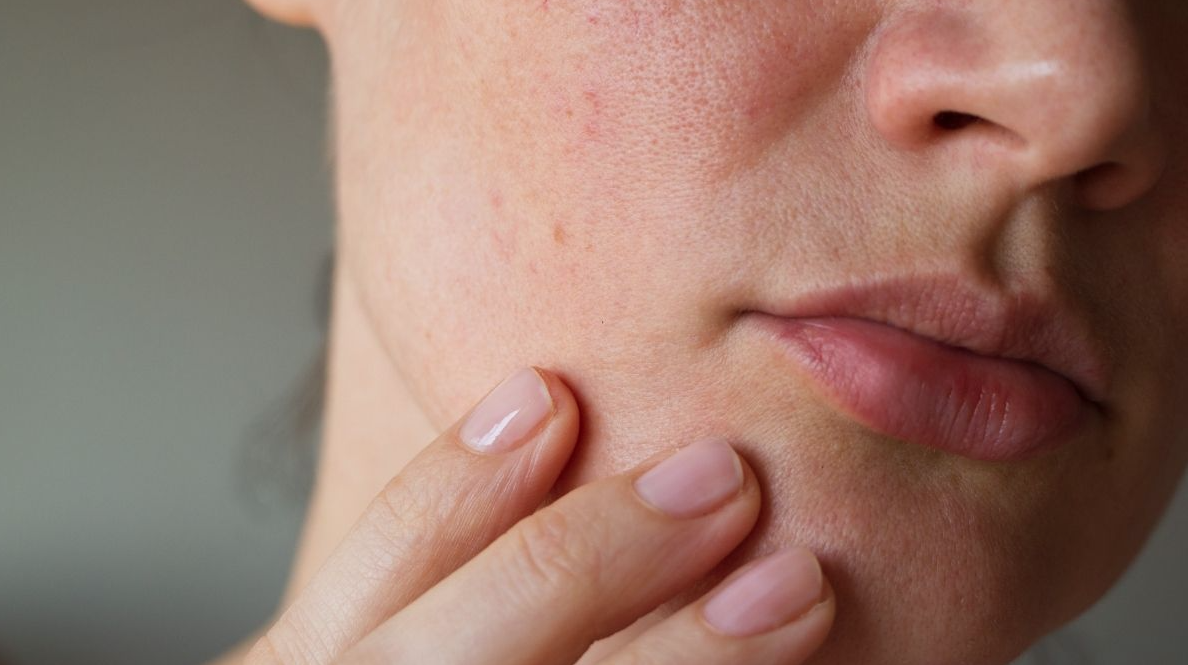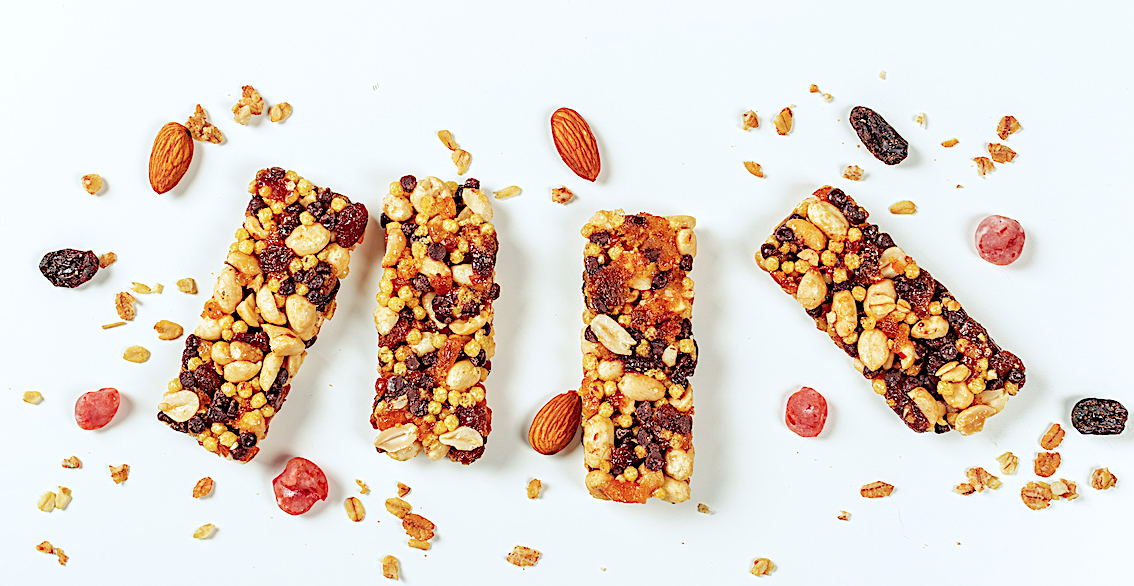Dry skin means deficient in water, and dry means deficient in oils. But the difference is quite subtle, so you have to be aware of it to know what type of hydration or moisturization you need.
One search into products and you might get the idea: Are Hydration and Moisturizer different?
THE RAPID ANSWER: It should be yes, but how do you know which is best for your face? To find out, you need to look at dry skin.
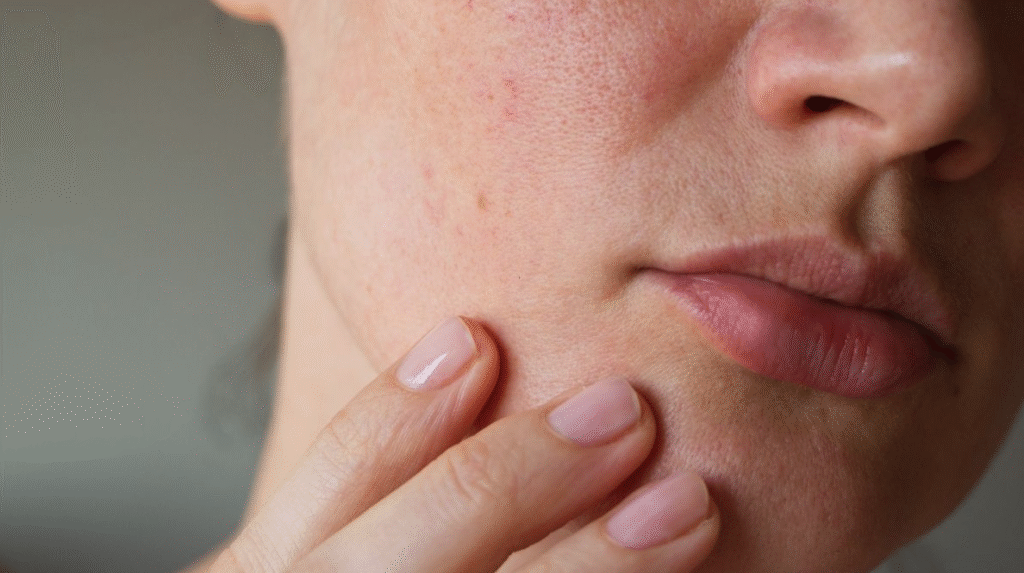
Dehydrated skin
Dehydrated skin means that it ‘s lacking in water. This can happen to everyone, regardless of skin type – people with oily or combination skin can still experience dehydration.
Dehydrated skin is usually dull and can if left untreated result in premature signs of ageing like surface wrinkles and lack of elasticity (firmness).
Another good way to tell if you’re dehydrated is with the pinch test. The pinch test itself won’t tell you if it’s dehydrated, but you can start thinking about your skin from the inside out.
Try the pinch test
- Pinch off a small section of skin on your cheek, abdomen/chest, or the back of your hand and hold for a couple of seconds.
- If your skin snaps back, you’re likely not dehydrated.
- If it takes a few moments to bounce back, it’s probably dehydrated.
- Repeat in other areas if you’d like.
With dehydrated skin, you might also notice:
- darker under-eye circles (bags), or a tired appearance
- Itchiness
- skin dullness
- fine lines and wrinkles
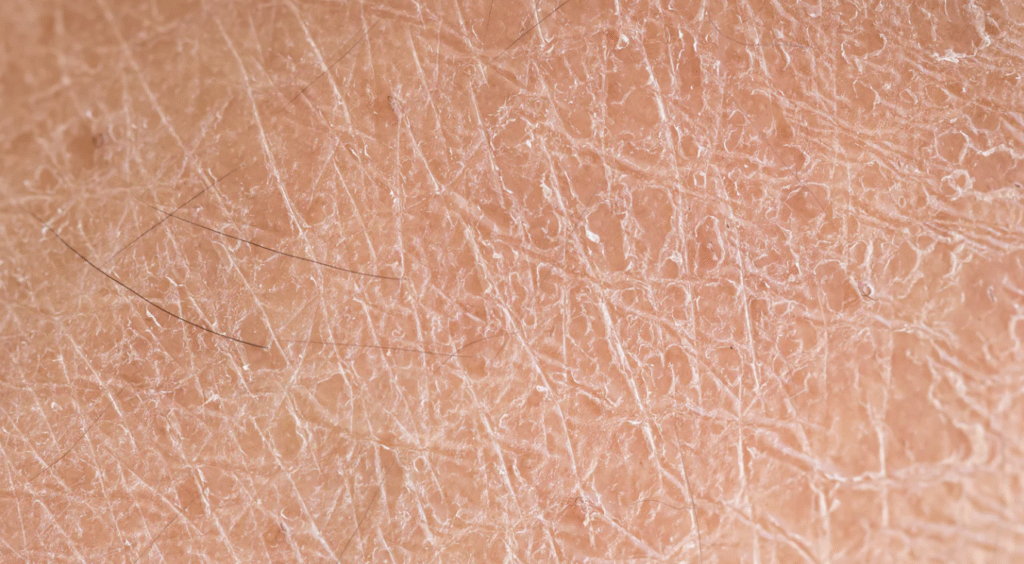
Dry skin
Dry skin (xerosis cutis), on the other hand, doesn’t lack water. Dry skin is a skin condition ( similar to oily or combination skin ) when the complexion doesn’t have oils (Trusted Source ) or lipids present ( resulting in a more flaky/dry appearance ).
You might also see:
- Scales
- skin flakes
- redness or other color changes
- Irritation
- increased incidence of psoriasis, eczema, or dermatitis
Dehydrated skin and dry skin have different treatments
If you want your skin to look and feel its best, then you need to hydrate or moisturize.
If you have dehydrated skin, you may be able to skip moisturizers. If you have dry skin, you may find that hydrating only makes the skin worse.
If you’re hydrating/moisturizing, you want to use hydrating ingredients first, followed by the steps necessary to ‘ lock ‘ that moisture in.
You can check out our table below for an ingredient list by condition (not everyone’s skin is the same, so you should talk to a dermatologist before trying new ingredients or products).
Skin care ingredients to avoid with dehydrated skin
However, some ingredients may help with your skin regenerating itself when it’s at its most dehydrated/dry than it has ever been. You’d still want to watch out for a few ingredients that might be harmful.
Since your dehydrated/dry skin is more sensitive than your normal skin, try to avoid these possible skin irritants when going on skin care:
- fragrance or perfume
- Dye
- alcohol or denatured alcohol
- Physical exfoliants like sugar/coffee grounds-based face/body scrubs
- pure essential oils (I’d dilute them in a carrier oil first )
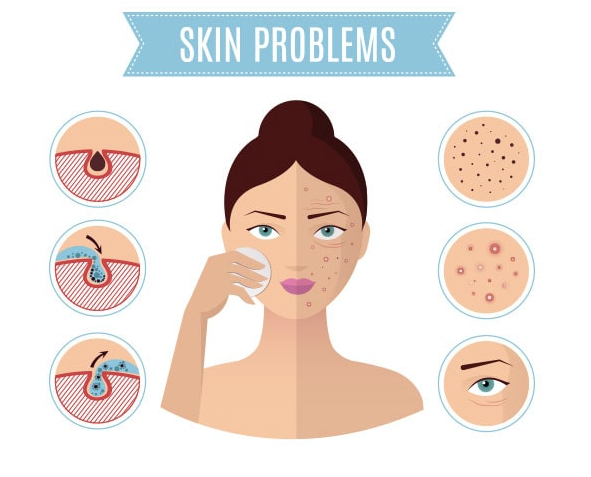
Extra tips for your skin health
For dehydrated skin there ‘s oral hydration to consider since you are putting water into your skin from the inside. You can also try to eat things like:
- Watermelon
- Strawberries
- Cucumber
- Celery
- Consider carrying around a water mist, like rose water.
For dry skin, continue moisturizing. This helps dry skin to better retain water and keep a proper hydration level.
The best thing to do for dry skin is to look for products that help you lock in moisture, especially overnight. A humidifier ( especially during the winter ) will help, and a gel sleeping mask is another option.
If your hands or feet are particularly dry, you can try slathering on a moisturizer and then going to bed with gloves or socks on so that your skin can soak it in.
»More on this: 8 Home Remedies for Severely Dry Skin
When to seek professional care
If, after trying home treatment, your skin never changes/worsens, you need to consult a dermatologist, who can suggest products/ ingredients to you.
In some cases, they’ll prescribe a topical medication to help with your skin problem.
Takeaway
Dehydrated skin and dry skin are not the same skin condition. Dry skin is not one’s skin condition but a skin type.
Dehydrated and dry skin require different treatments, and it ‘s important you know which one you have before trying any of the remedies. You may need more hydration, more moisturization, or both.
If by at-home treatments doesn’t help in improving your skin condition or worsens on visit a dermatologist. They can help you find the right treatment for you and your skin
